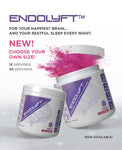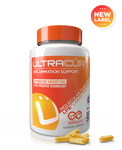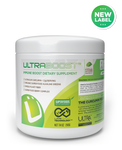Information is priceless when it comes to your health.
And there are compelling reasons for you to become your own #1 health researcher. It's not the "rocket science" some people think it is, either. In other words, it's easier than you think. We'll show you how to get going on it. 😊
It's as close as your computer or smartphone. So you can't beat the convenience.
And who knows... you could find your own secret to healing!
Why you likely won’t get enough info from your doctor...
Given the way that today’s medical model is set up, and how many patients your doctor needs to see per hour to fit today’s medical business model, you’re highly unlikely to get all the health info you need from your doctor.
A study in January 2022 said that the average patient should expect no more than two to seven minutes of Q&A and advice from their doctor in an appointment.
The average doctor sees 15 or more patients per hour... in some specialties as many as 40. (Plus, they spend 25% of their time completing paperwork.)
Do the math...
You simply must be willing to invest time reading, listening to podcasts, and searching the medical literature on behalf of yourself (or a loved one)... if you want to achieve peak wellness.
There’s no way your time-stressed doctor can give you all you need or want during that short window!
Worse yet, doctors only get 19.6 hours of nutritional training across all four years of medical school, according to a 2010 report in Academic Medicine.

Residency programs are no better.
A 2016 Case Western Reserve study looked at 25 Ohio family medicine, internal medicine, and OB-GYN residency programs... and found that residents got a whopping 2.8 hours of instruction on obesity, nutrition, and physical activity counseling per year.
The moral of those sobering facts is that you should not expect to get nutrition information or info on natural remedies from your conventional doctor. It may actually be inaccurate if you do! That’s not their forte!
If you do 40 hours of research on the nutritional components of your particular disease, you’ve probably done more research on it than your doctor has in the past five years. Or lifetime.
Doctors, like all of us, are time-stressed and have many irons in the fire. They tend to flow with what they know (or think they know), based on what they learned in medical school a couple decades ago. Most are not reading the research hot off the press that you will be.

The Exception to This Rule
The exception to this rule may be integrative, holistic, and naturopathic doctors, who generally seek out additional training especially in topics of nutrition and anti-aging medicine.
Integrative doctors such as this week’s podcast guest, Dr. Deanna Windham, spend one hour with first-time patients. And much of that time is spent with the patient talking about their medical history.
This helps her zero in on their background, contributing issues, and the best first steps to take going forward.
Of course, she also asks clarifying questions and will run tests to see what’s going on internally.
To get this level of care, you should expect to pay privately for your doctor’s advice. That’s really the only shortcut to gaining wellness without doing your own research.
Plus, it’s your body, your health. You should care more about your condition(s) than anyone else.
And you could find a “secret cure” that even your integrative doctor doesn’t even know about!
So, how do you research a condition you’re struggling with?
First, rejoice that you have it a lot easier than you would’ve 30 years ago.
If you have a computer or smartphone, you have a vast array of research and knowledge right at your fingertips.
For example, it’s easy to enter into Google, “best supplements for knee pain” or “best supplements for osteoarthritis.”
While there’s some misinformation out there, look for commonalities between lists and some reasonable evidence for each (like studies).
Secondly, PubMed is your friend.
Go to https://pubmed.ncbi.nlm.nih.gov/.
Enter items from the list you created from your initial research. For example, “curcumin for knee pain.” Depending on what you’re searching for, you might find a few research studies. Or thousands.
A couple things to keep in mind.
1. Quite often research on natural products lags behind that done for pharmaceutical products, because there’s no million-dollar payout for discovering a new drug.
Even then, some natural substances have a longstanding record of use for certain purposes in Ayurvedic medicine and other traditional medical systems prior to modern allopathic medicine. There just might not be actual systematic studies to back it up.
2. Natural substances in some cases take a bit longer to elicit a desired response than drugs do.
It’s important to remember that you likely didn’t get into your present situation in a day... it may have been simmering in the background for years.
So have realistic expectations when finding your way back out of that situation.
Listen to this week’s podcast today!
Along with research about specific conditions, I recommend you read our blogposts and listen to our podcasts. Both will increase your health education and your potential for peak wellness... as you'll be more likely to implement new health strategies as you learn about them.
I invite you to listen to this week’s segment of our 3-week podcast series with Dr. Deanna Windham. You’ll be intrigued by how her personal medical problems led her down a path of discovery that has helped many others find their way back to wellness.
Listen to the first segment or the second segment if you missed them earlier.




